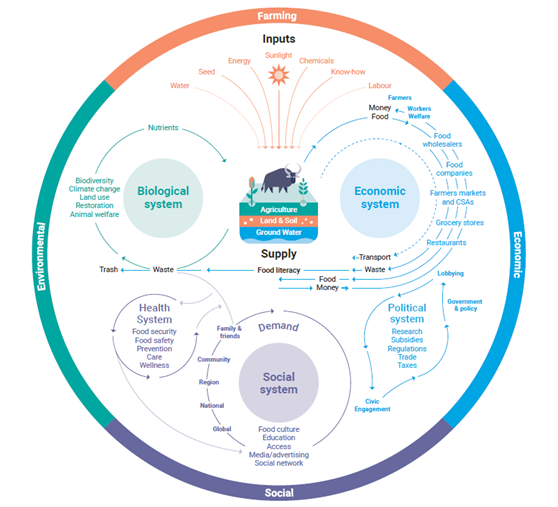
Interdisciplinary research to investigate leafy greens food supply chain in Ghana
Event details
Join our YESI International Fellows Seminar with Dr Emelia Darko Adzimah, Procurement and Supply Chain Management Department, Kumasi Technical University.
Abstract/Synopsis
This project focuses on the supply chain of leafy greens in Kumasi, specifically lettuce, spring onions, cabbages, and carrots. Our investigation revealed that while the supply chains involve the usual primary actors, intermediary actors, and final consumers, the diversity and complexity of these actors presented significant challenges throughout the entire chain.
Key issues identified include communication breakdowns among stakeholders, farmers not owning their land, and difficulties securing fair prices for their produce. Also, retailers and market women face obstacles such as the lack of cold storage facilities and appropriate transportation methods to convey fresh produce. The unsupervised use of agrochemicals further exacerbates these challenges.
Our data collection highlighted the urgent need for proper knowledge and training in growing these greens and financial support to address these systemic issues. By tackling these challenges, we aim to create a more efficient, sustainable, and resilient supply chain for leafy greens in Kumasi.
Our data collection highlighted the urgent need for proper knowledge and training in growing these greens and financial support to address these systemic issues. By tackling these challenges, we aim to create a more efficient, sustainable, and resilient supply chain for leafy greens in Kumasi. Our Leafy Greens Project is being developed by an interdisciplinary team of seven dedicated professionals, encompassing supply chain management, food safety, and social sciences. Having worked in various teams before, I can confidently say that the enthusiasm and commitment of each team member to see this project succeed is genuinely remarkable.
Our team members' diverse cultural backgrounds add challenges and excitement to our collaboration. Navigating these cultural pathways has been crucial for fostering mutual understanding and respect, which in turn has been vital for the success of our project. The synergy within our team, driven by a shared passion for sustainability and innovation, has made this journey rewarding and enjoyable.
Bio

Dr. Emelia Darko Adzimah is a dedicated Senior Lecturer in the Procurement and Supply Chain Management Department at Kumasi Technical University, with 13 years of experience teaching upper-level college students in these fields. Her research focuses on supply chain management, and she is currently engaged in interdisciplinary collaborations. Among her most recent projects are:
- Organizational Culture Influences on Corporate Social Responsibility and Sustainable Procurement in a Service Sector Industry
- Achieving Value for Money in Waste Management Projects: Determining the Effectiveness of Public-Private Partnerships in Ghana
- A Survey Analysis on Institutional Challenges in Implementing Public-Private Partnership (PPP) Projects: A Perspective from a Developing Economy of Ghana
- A Brief Review of Corporate Social Responsibility Reporting (CSSR) in Ghana
Before joining the York Environmental Sustainability Institute (YESI) project, Dr Adzimah was selected for a prestigious 6-month online mentorship program on sustainability by Tullow Oil Ghana, aimed at educating stakeholders on current sustainable practices in the oil industry.
During this program, she discovered the YESI advertisement, reached out to Professor Peter Ball, and is now actively involved in the Leafy Greens Project. This project, which aligns with her passion for sustainability, focuses on improving local leafy green supply chains in Ghana and the UK, with the goal of fostering sustainable, resilient, and secure food systems.